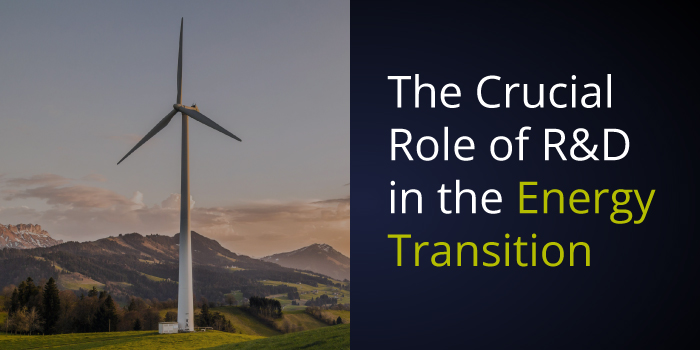The Crucial Role of Research and Development in the Energy Transition
Written by Roger Daynes, Head of Region – Scotland
The UK energy sector is undergoing a profound transformation, driven principally by the urgent need to address climate change, energy security and economic sustainability.
Concurrent to this is a level of unprecedented political turmoil in both Westminster and Holyrood. In the case of the latter, the highly publicised breakdown of the Bute House Agreement was triggered by the Scottish Government’s recent decision to abandon its target to cut carbon emissions by 75% by 2030. Instead, Scotland will follow the lead of the UK and Welsh governments by setting a target date for net zero emissions of all greenhouse gases by 2045 (5 years ahead of the 2025 target set by the UK Government).
This climbdown by the Scottish Government exposes two key factors in the global pursuit to decarbonise; firstly, that any targets set must be proportionate and achievable. Secondly, that the transition to green energy must be achieved in a manner that protects both the wider economy and people’s livelihoods.
The driver of this transition will be scientific and technological advancements in R&D. Decarbonisation has necessitated a shift towards renewable energy sources and in Scotland we’re seeing a commitment to innovation that is exemplified by its establishment of the world’s first Floating Wind Innovation Centre (based in Aberdeen’s Energy Transition Zone).
Curious about the rest?
In the full article on LinkedIn, Roger explore how Aberdeen is repositioning as Europe’s energy capital for low-carbon technology, the challenge of securing a just transition for workers, and the balancing act between renewable innovation and fossil fuel efficiency. He also highlight pioneering businesses, like Trogen Energy and Verlume, who are leading the charge.
Join the conversation and read the full article here on LinkedIN




